I was always a bit reluctant when thinking about a structured process in making. Making should be free, happy and intuitive. Of course I learnt that also experienced makers (like myself) go through a process, but on a subconscious level. And that new makers can benefit big time by a supportive process to structure and deepen their work.
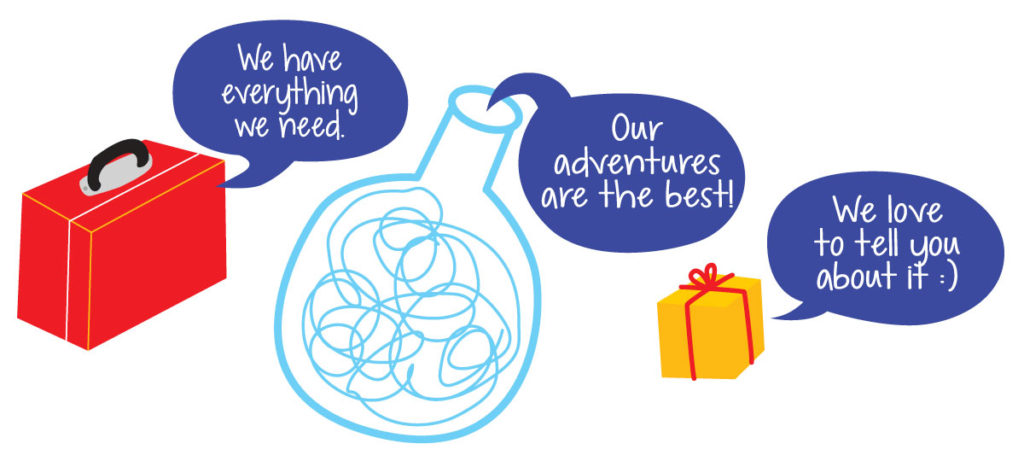
When I was writing my book on maker-education in schools (hope to be able to offer an English translation soon) I met a lot of teachers. They used the support of an explicit process happily. (Design thinking, the creative process or another similar one.) The process made it possible to work with the total of 25+ children at the same time. Most (inexperienced) children find it supportive, children that don’t need it don’t mind so much. So far so good.
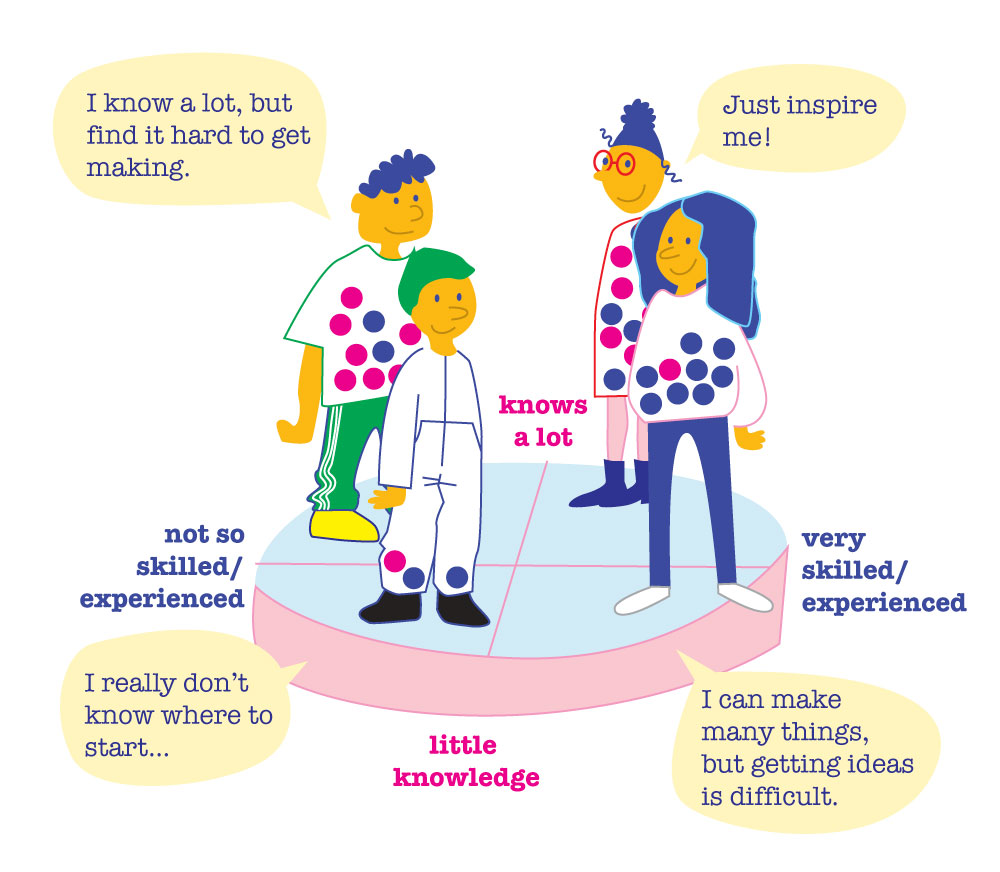
But thinking about it still kept me up at night. Because the structured processes we use help with the How to do it, but are not so much about How YOU do it. There is a certain risk to that:
- Many processes ask for note taking and evaluating during the work. This might break the flow-state the maker is in. Over-evaluating compromises the natural pace of the creative making process.
- Many processes focus on a design approach. They converge the thinking and work towards a logical and rational result: a solution to a problem. Is this where making should be? What about free thinking and wandering off?
- Making is a very personal. By pushing it into a mould, things that don’t fit are lost. Maybe we need support that doesn’t focus so much on the process, but more on the maker. The person.
The maker at the wheel
So I got to work.
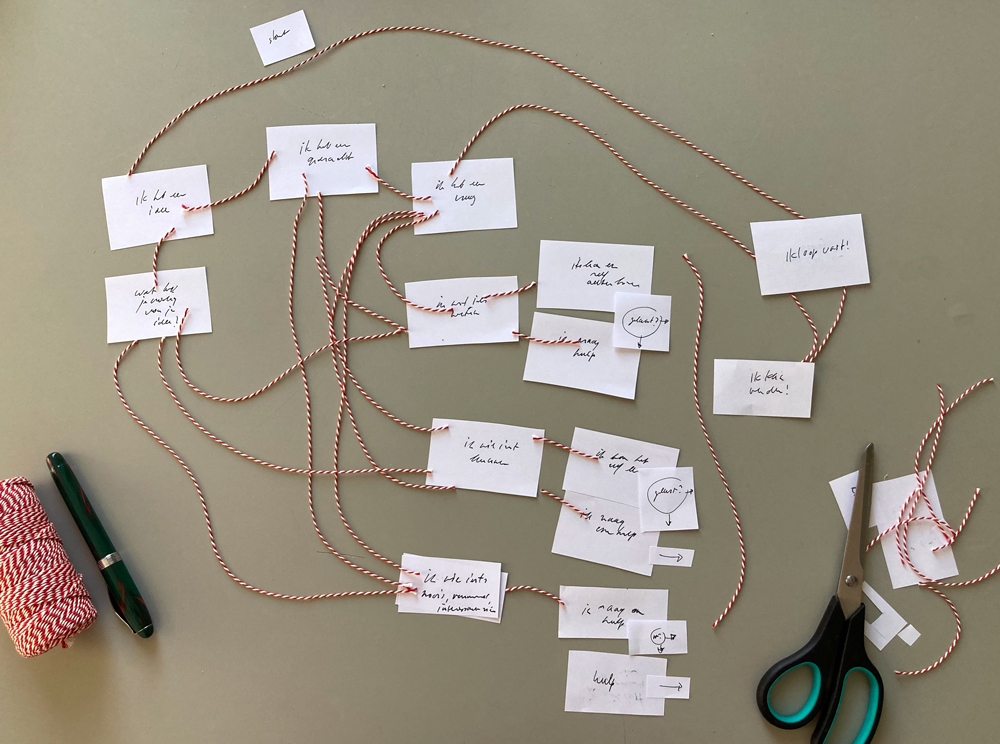
Instead of a 1,2,3 tool (research > define > design > make > review > iterate), I wonder if it is possible to have a tool that helps asking questions and finding answers. As an extra tool (or a replacement tool) for experienced makers.
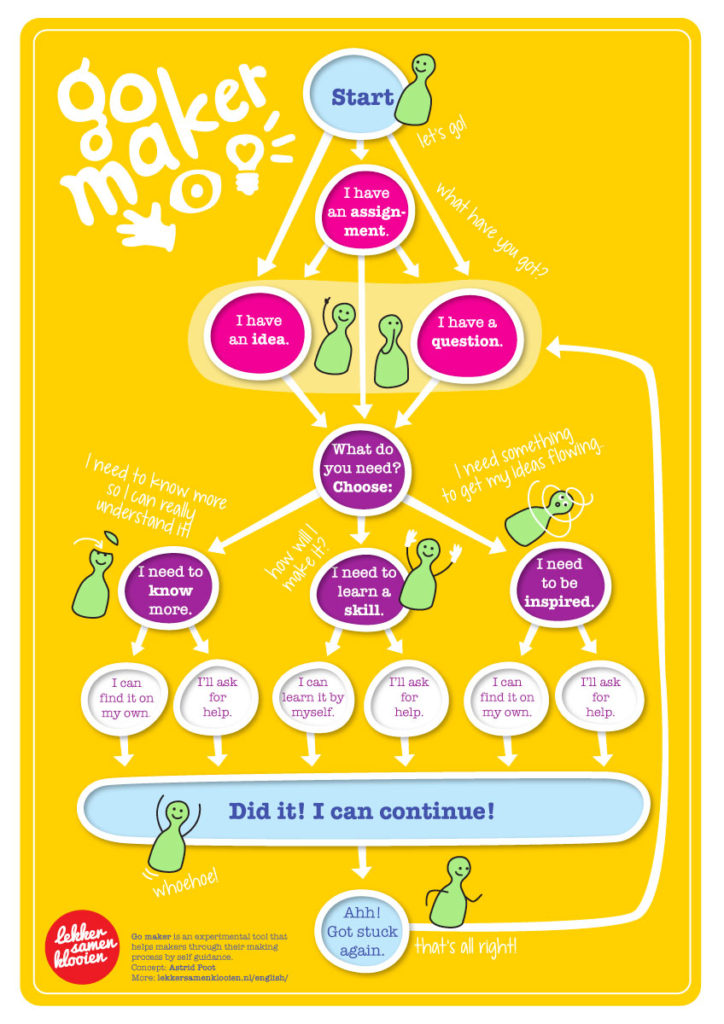
Go Maker!
With a pawn the makers walk their own process without too much interruption.
The game can be a tool to train self-efficacy, but can also be useful for the teacher to follow the process without having to disturb the maker.
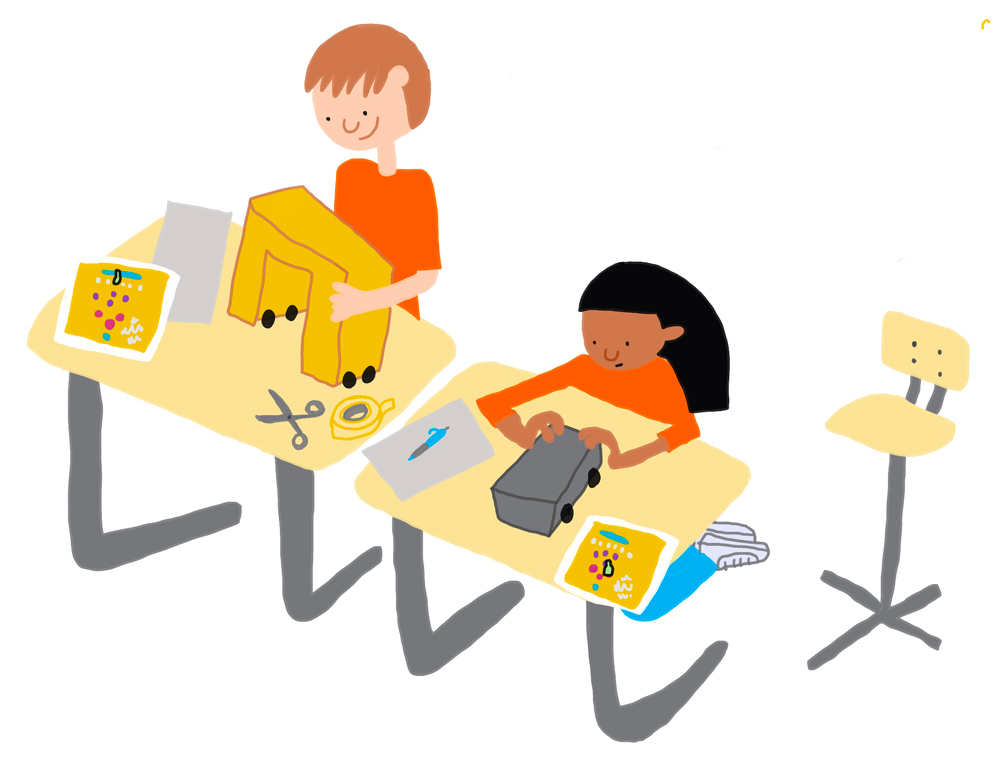
The work takes place in a non-simultaneous process in a workshop setting. The teacher should provide the answers to the needs:
- To know: knowledge should be available, or help finding it.
- To master skills: makers should be able to learn and practice skills they need. (By a little course like these, of with help.)
- To get inspired: beautiful, unexpected, ambitious or confusing things should be at hand to spark imagination.
All things teachers already provide!
This move towards self-directed helps makers to become more autonomous and understand their personal needs. (En decreases the risk of children becoming script-dependent.)
Makers be like: let’s learn and share!
This is a first draft, a provocatype if you will. Maybe it is utter bollocks or a solution tot a non-existent problem. (That would be reassuring actually…) Let’s talk it over. You can download Go maker here.
Please find me at hallo@astridpoot.nl and @astridpoot.
Love (always).